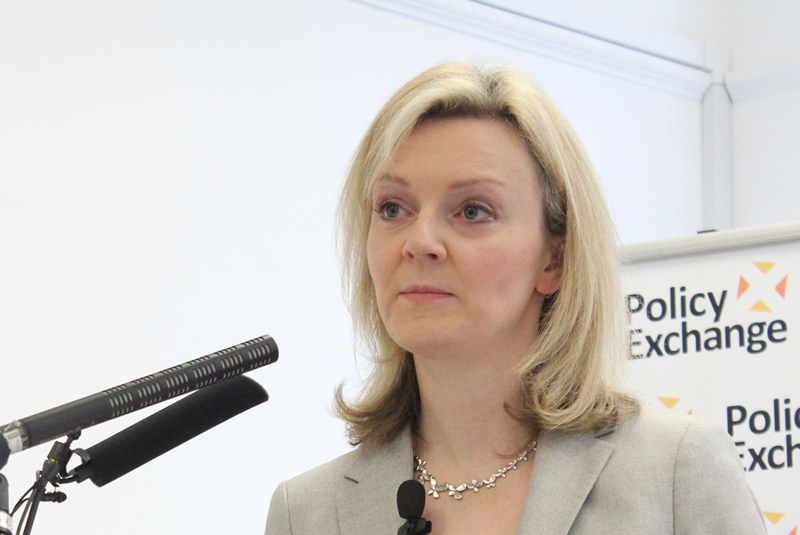
Environment Secretary Elizabeth Truss has told the European Union’s new Agriculture Commis-sioner that she wants the controversial three crop rule scrapped.
The Secretary of State for Environment, Food and Rural Affairs told farmers attending the Northern Farming Conference in Hexham, Northumberland that she had raised the issue with the new commissioner - Irish representative Phil Hogan - during the first meeting of Europe’s agriculture and fisheries ministers following the creation of the new European Commission. She told him she wanted an early review and she said she would like to see the policy, described as “utter madness” by the National Farmers’ Union, scrapped. The NFU has said that the rule will undermine much of the efforts that have been expended by farmers to improve efficiency on their farms.
The three crop rule, which is being introduced as part of revisions to the Common Agricultural Pol-icy, requires some farmers with more than 30ha of arable land to grow three different crops. It is due to come into force on January 1 next year. But Elizabeth Truss told farmers at Hexham, “The three crop rule is a fundamentally bad idea. It is wrong for people in Brussels to be dictating what crops our farmers grow here in England.” She said she had met Phil Hogan at the council meeting and she had “put that point to him.”
“We want to see as early as possible a review of the three crop rule to see what impact it is having, but my view is that it should be got rid of. I told Commissioner Hogan it would make him a very popular man not just here but also across Europe if he were to get rid of this ridiculous rule,” said the Secretary of State, who said she also wanted to see decisions on agriculture repatriated to the UK from Europe under Conservative plans to renegotiate the country’s terms of membership of the European Union. The Prime Minister has promised to give the British electorate a referendum in 2017 on reformed membership of the EU if he is returned to power at next year’s General Election.
Asked by one member of the audience whether the UK would be better off in or out of the EU, the Secretary of State said she would prefer to see the country remain part of a reformed European Un-ion. “We need access to those markets,” she said. “We are the second largest exporter of lamb in Europe. We are also negotiating trade deals around the world.” But she said that, because of the way the Eurozone was structured, there would have to be change in the future and she said the Brit-ish Government needed to negotiate the best deal for the UK. She said there had been some success in fisheries policy in getting more decisions made at country level and she said she would like to see more national level decision making for agriculture.
“It is certainly something I want to see as part of our renegotiation with Europe - getting more of those types of decision making taking place at a UK level because there are too many rules and reg-ulations being made at a European level that have a detrimental effect on our industry. We have made some progress on GM but I would like to see more happen at a UK level and I think the nego-tiations for 2017 are a very important part of that.”
GM policy and regulations covering pesticides were two areas mentioned specifically by the Secre-tary of State when she spoke about repatriating decision making to the UK. She said that she had met both the environment commissioner and the health commissioner of the EU - the two commis-sioners she said were responsible for pesticides and for genetic modification. “What I made very clear to them is that we want decisions ideally made at a UK level on these issues.”
She said that such decisions also had to be made on a “scientifically rational basis.” She said, “We must follow the best available science. We must make sure that our farmers have access to the tech-nology they need. The technology will enable them to use water more effectively, to be able to manage plant disease, but also to be able to compete with the rest of the world. We need a level playing field with the rest of the world,” she said.
One member of the audience said that scientific products that were well proven were being denied to British farmers because of heavy restrictions. The Secretary of State agreed. “It is a strange situa-tion where we have got centres of excellence like John Innes in Norfolk producing fantastic tech-nology that can’t be used in this country but they are being used elsewhere in the world and helping those farmers become more competitive.”
She said that the European single market was very important for the food and farming industry but she said that there was currently a huge regulatory burden imposed by the EU. She said that 25 per cent of the regulations across government were in Defra on issues involving environment and agri-culture. “It does have a big impact on our businesses and it has a big impact on food and farming,” she said. “I have every confidence that the Prime Minister will do a good job in negotiating more decision making happening at a UK level whilst remaining part of the EU. Environment and agri-culture is a major area where that can happen. But when we have things like the three crop rule, which is going to be a huge complication for arable farmers, where we have got the level of regula-tion we are seeing on all kinds of issues like pesticides, that is not the ideal agriculture policy.”
She said she would like to see policy reformed and more decisions taken within the UK whilst the country remained part of the single market.
